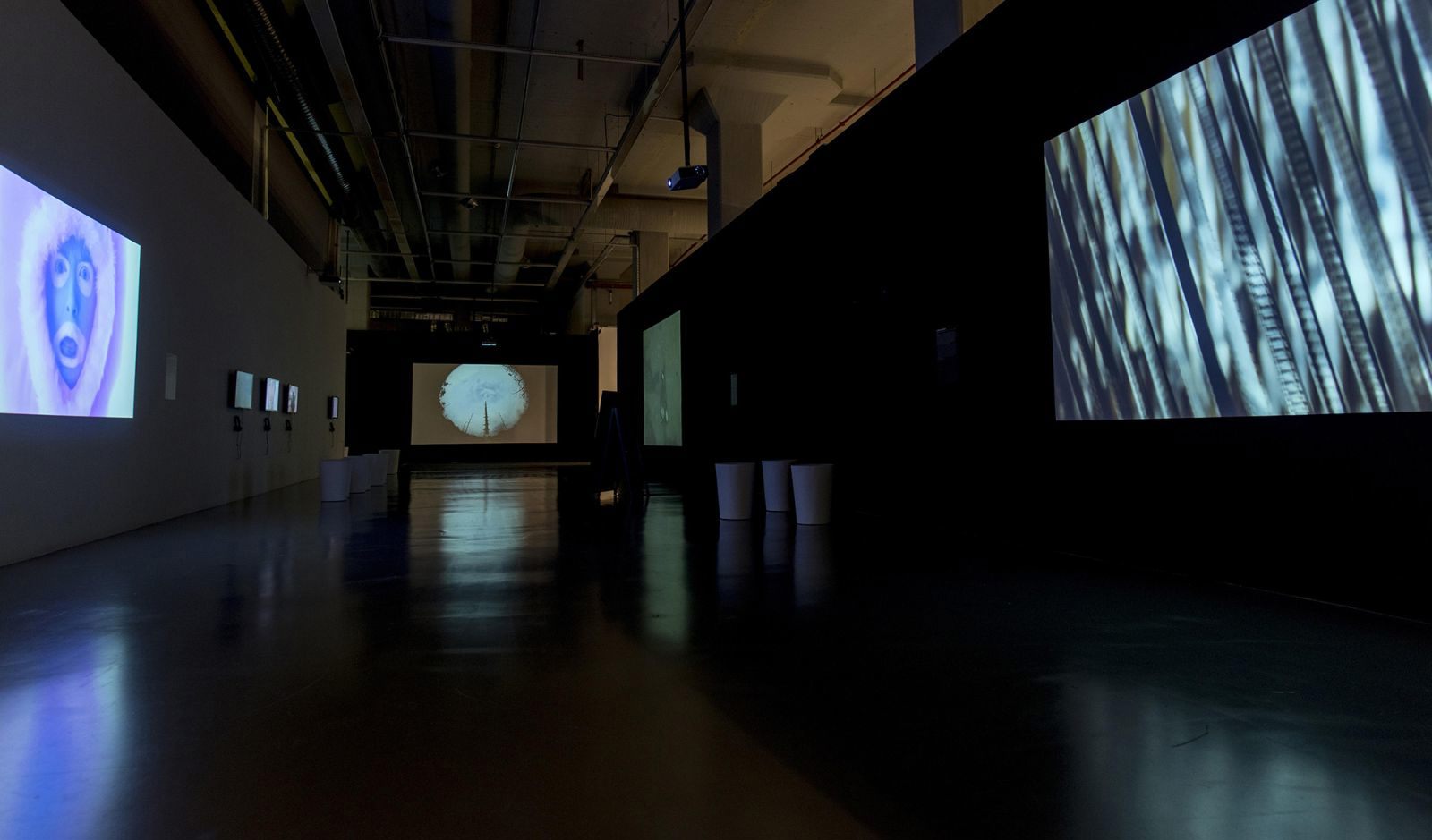- Open Today: 10.00–18.00
- Ticket
- Shop
- Membership
- TR EN
Artists' Film International 2016 on "Technology"

July 2 - October 6, 2016
Istanbul Modern presents "Artists’ Film International", an exhibition and program featuring videos, animations, and short films by artists from around the world. Focusing on the theme of “technology”, this year’s program explores the psychological and social effects of different technologies as well as the sociopolitical codes of new technologies, and the way they transform production processes of the moving image. Conversations on video art and artists’ films are also programmed parallel to the exhibition.
Initiated by the Whitechapel Gallery in 2008, this year Artists’ Film International continues in partnership with 13 art organizations from different parts of the world. Every year, each partner organization nominates the current work by an artist from its country. The selection of the films are made around a common theme each year and programmed as screenings or exhibitions according to the curatorial decision of each organization. Having participated in the program with works by Ali Kazma, İnci Eviner, Ergin Çavuşoğlu, Sefer Memişoğlu, Bengü Karaduman, Burak Delier, and Vahap Avşar in the previous years, Istanbul Modern invited Zeyno Pekünlü to Artists’ Film International 2016. Thus, Pekünlü’s work will not only be on view at Istanbul Modern, but at the international partner organizations throughout different periods of the year 2016.
Curator: Çelenk Bafra
Assistant Curator: Yasemin Ülgen Saray
Program Partners
CCAA / Centre for Contemporary Art Afghanistan
Ballroom Marfa, USA
The Cultural Centre of Belgrade, Serbia
Fundación PRóA, Argentina
GAMeC / Galleria d’Arte Moderna e Contamporanea di Bergamo, Italy
MAAT - Museum of Art, Architecture and Technology, Portugal
Neuer Berliner Kunstverein (n.b.k), Germany
Para/Site, China
Project 88, India
Tromsø Kunstforening, Norway
Museum of Modern Art in Warsaw, Poland
Whitechapel Gallery, UK
Program:
THE INSTITUTE FOR NEW FEELING
(SCOTT ANDREW, AGNES BOLT, NINA SARNELLE)
This Is Presence
2016, 17'19''
IGOR BOŠNJAK
Eutopia
2015/2016 20'13''
ANDRÉS DENEGRI
Éramos Esperados
(plomo y palo)
We Were Expected
(lead and stick)
2013, 4'14’’
ROHINI DEVASHER
Atmospheres
2015, 9'
FAREEHA GHEZAL
Violence Against Women
2010, 1'40''
IGOR JESUS
POV
2015, 1'39''
RACHEL MACLEAN
Germs
2013, 3'
EVA & FRANCO MATTES
Dark Content
(Episodes 1, 2, 3)
2015, 16'18''
MATEUSZ SADOWSKI
It Takes Time
2014, 3'13''
KARIN SANDER
Sigrid 1930
2009, 35''
MAK YING TUNG
Disarming
2013, 3'53''
TOR JØRGEN VAN EIJK
Purgatory
2010, 20'
Guest of 2016
Zeyno Pekünlü
Born in 1980 in Izmir, Zeyno Pekünlü graduated from the Department of Painting at Mimar Sinan Fine Arts University and received her master’s and proficiency in art degrees from her alma mater. She completed a second master’s degree in "Artistic Production and Research" at the University of Barcelona. In her works, the artist uses found footage and texts to decipher the process of information production and distribution through the methods of montage and rearrangement. While removing from its context and function the information she obtains from printed and digital media, she at the same time points to the impossibility of the ultimate commodification of information, even in the present age of copyright.
How to properly touch a girl so you don’t creep her out?, 2015
Video, 19’ 10’’
"How to properly touch a girl so you don’t creep her out?" is a collage video that Pekünlü assembled from "How to..?” videos she found on YouTube. While focusing on the production and flow of daily information, the work questions how commodified information gains value within the process. It draws attention to the role of the Internet in shaping of the individual’s everyday behaviors and in sharing of experiences. In the video, life coaches with no training whatsoever, shady experts, and “pick-up artists”, who give the details of this "art", represent the new and popular media of masculine expression. The work also bears witness to how the production and distribution of casual information about everyday life is carried from the private domain of male conversations to the digital public sphere. Built upon questions pertaining to the essence of genuine information and its reproduction processes, the work emphasizes the impossibility of appropriating information or of sharing it within a single context. Pekünlü presents information that is updated every second as attempts at building archives in which she absurdly classifies this information according to its functions.